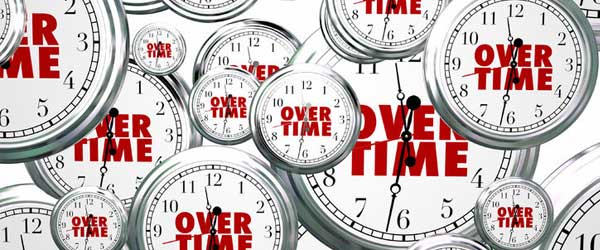How to keep your cleaning business out of court when it comes to overtime rules
1. What is Going on With the DOL Overtime Rule?
On December 1, 2016, the U.S. Department of Labor’s (“DOL”) new overtime rule was supposed to go into effect. The new rule would have more than doubled the salary level required to be paid to employees who were classified as exempt from receiving overtime pay. However, a federal judge blocked the new overtime rule from taking effect. With the new presidential administration, it is unclear whether the DOL will seek to enforce the rule. For now, employers should continue following the original overtime regulations.
2. Take Care When Classifying a Worker as “Exempt”
Many employers classify their “supervisors” or “managers” as exempt from overtime pay. However, job title alone does not determine whether an employee should be classified as exempt. Employers must look at the actual job duties to determine whether their managers or supervisors are correctly classified. Does the employee supervise two or more full time employees? Does the employee spend more than half of their time on management duties? These are just some of the factors to consider when determining whether you are classifying your employee correctly as exempt.
3. Take Care When Classifying a Worker as “Independent Contractor”
Studies estimate that approximately 55 million people work in freelance arrangements in the U.S. today. Many business and new start-ups are hiring workers on a project by project basis. However, there are a variety of factors to consider when determining if a worker should be classified as an independent contractor or an employee, including: (1) Is the work performed an integral part of the employer’s business? (2) Does the worker get to manage his or her own opportunity for profit and loss? (3) Does the worker provide his or her own tools or equipment? (4) How much control does the employer have over the worker?
4. Training
If training is mandatory and directly related to the employee’s job, then the time spent training should be paid. This mandatory training may trigger either daily or weekly overtime requirements. However, voluntary training not required by the employer is not work time, even if job related. For example, if an employee chooses to take a night class at a university, this is not considered work time.
5. Proper Timekeeping
 Accurate time records are the best defense against wage and hour claims. When considering your timekeeping practices, here are some things to consider: (1) Are employees entering their own time or is their time being entered automatically? (2) Do employees get to review and sign off on their time? (3) What is the employer’s practice if an employee works unauthorized overtime? (4) Are meal breaks reflected in the timekeeping records? (5) Do employees understand what the expectations and policies are pertaining to timekeeping?
Accurate time records are the best defense against wage and hour claims. When considering your timekeeping practices, here are some things to consider: (1) Are employees entering their own time or is their time being entered automatically? (2) Do employees get to review and sign off on their time? (3) What is the employer’s practice if an employee works unauthorized overtime? (4) Are meal breaks reflected in the timekeeping records? (5) Do employees understand what the expectations and policies are pertaining to timekeeping?
Annie Lau is an associate in the San Francisco office of Fisher Phillips. She can be reached at alau@fisherphillips.com.






